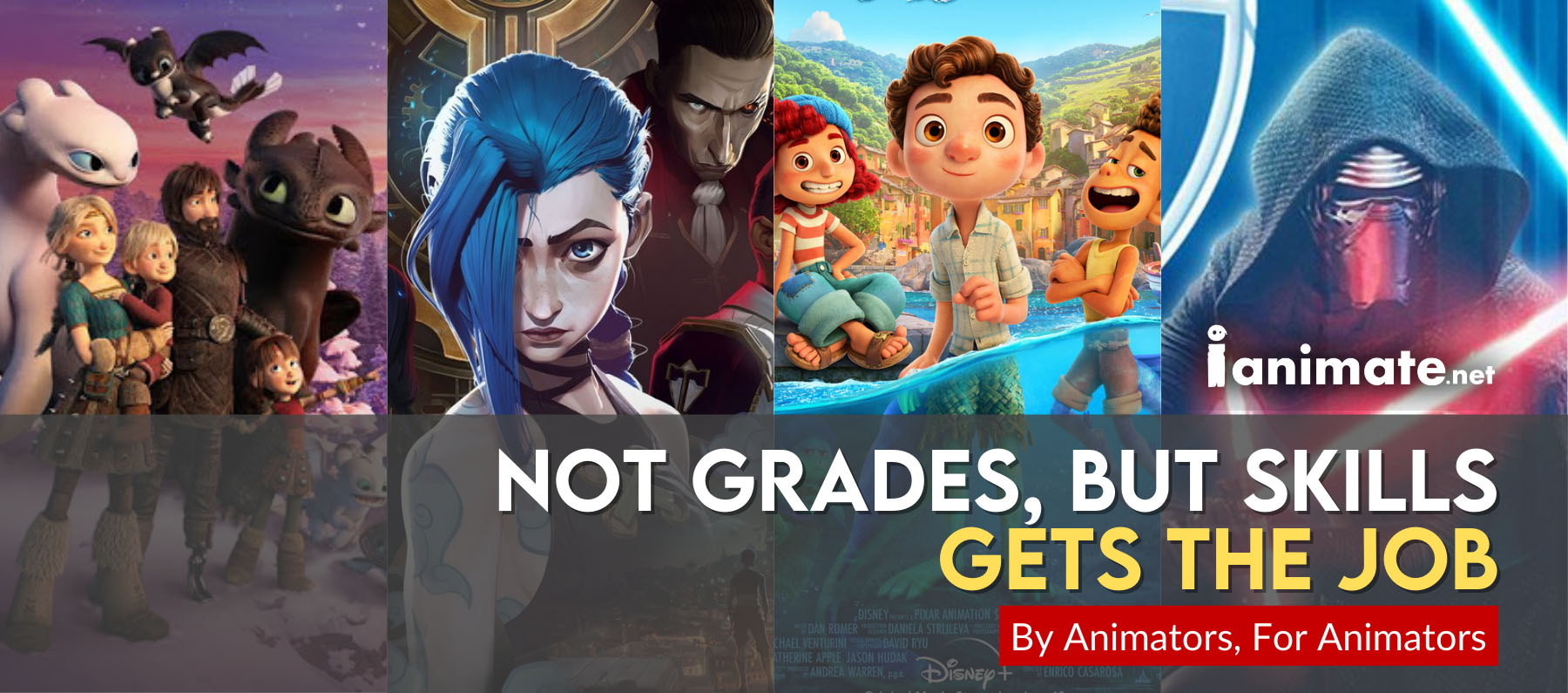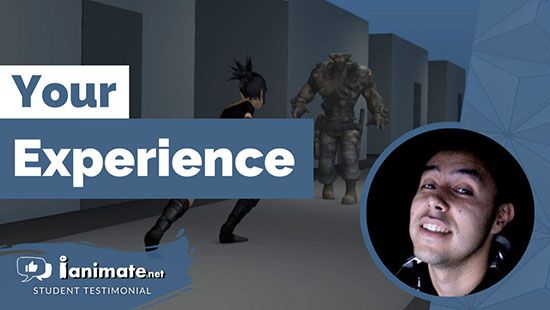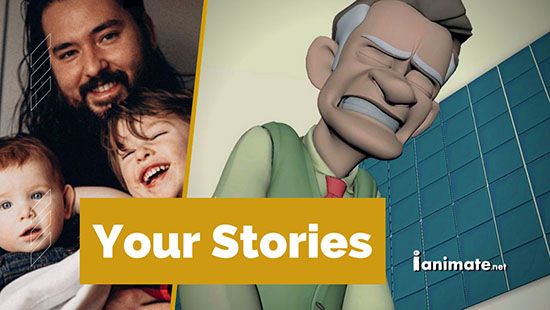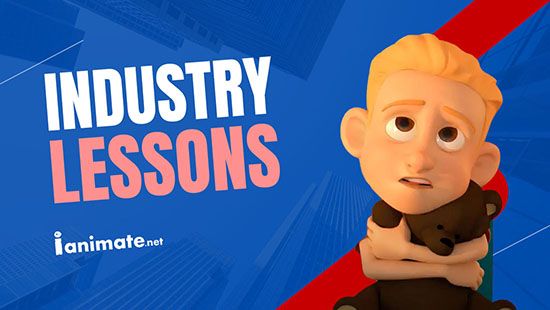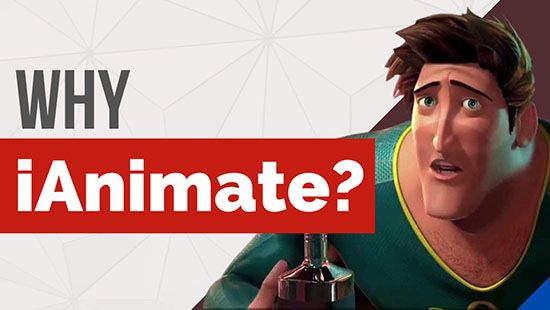Is Animation Hard? Navigate the Exciting World of Animation
Is animation hard? Discover the challenges and rewards of animation, learn essential skills, and get tips for starting your journey in this dynamic field.
Article by Richard Arroyo & iAnimate Team
Animation can be a challenging art form that requires both creativity and technical prowess. We've seen firsthand how animators grapple with complex software, meticulous attention to detail, and the time-consuming nature of bringing characters to life. However, for those passionate about storytelling through motion, the rewards of mastering this craft can far outweigh the difficulties.
Is Animation Hard? Don’t Fail But Succeed
Let's be real - animation can be tough as nails. Why's it so hard? Well, imagine trying to breathe life into a digital puppet. You've got to master complex software that feels like it's got a mind of its own. Then there's the attention to detail - one wrong move and your character looks like they're dancing to a different beat.
And don't get me started on the time it takes. Rome wasn't built in a day, and neither was Buzz Lightyear. But here's the thing - many animators find ways to push through these challenges. They're like digital wizards, conjuring characters out of thin air. And when those characters start moving? It's pure magic. We've seen animators' faces light up when their creations finally come to life. It's like watching a proud parent see their kid take their first steps. That moment makes all the late nights and caffeine-fueled debugging sessions worth it. So yeah, animation is hard. But for those who stick with it, it's also incredibly rewarding.
Key challenges
- Mastering complex software
- Paying attention to every tiny detail
- The time-consuming nature of the work
- What makes it worth it
- The thrill of bringing characters to life
- The satisfaction of overcoming technical hurdles
- The joy of storytelling through motion
If you're thinking about diving into animation, don't let the difficulty scare you off. Everyone starts somewhere, and there are great resources out there to help you learn. iAnimate offers top-notch online animation training that can help you level up your skills. Remember, even the pros were beginners once. They just kept animating, one frame at a time. So grab your tablet, fire up that software, and start bringing your imagination to life. Who knows? Maybe one day we'll be working together on the next big game or movie.
Challenges in Animation
So, you're wondering if animation is hard? Let me tell you, it's not all rainbows and unicorns. The animation industry can be as tough as trying to eat soup with a fork. But don't worry, I've got your back. Let's chat about the hurdles and how to leap over them. First up, the tech. Animation software can be more confusing than assembling IKEA furniture. You've got to juggle dozens of tools, shortcuts, and features. It's like learning to play piano while riding a unicycle - tricky, but not impossible. Then there's the artistic side. Ever tried drawing the same character 24 times per second?
Yeah, it's as mind-bending as it sounds. And let's not forget about the industry itself. It's more competitive than a group of seagulls fighting over a French fry. Studios want top-notch work, delivered yesterday, on a shoestring budget. But here's the kicker - despite all this, animation is still one of the coolest gigs around. So, how do you thrive in this crazy world?
Let me break it down for you:
Master the basics
- Learn the 12 principles of animation (they're like the 10 commandments, but cooler)
- Practice your drawing skills (even stick figures count)
- Get comfy with at least one animation software
Stay updated
- The industry moves faster than a caffeinated squirrel
- Keep an eye on new tech and trends
- Network like your career depends on it (because it does):
- Attend industry events (virtually or in person)
- Join online animation communities
- Share your work and give feedback to others
Never stop learning
- Take courses (iAnimate offers some killer online training)
- Watch tutorials (JRA Weekly Demos)
- Analyze animations in games, movies, and shows
Remember, every pro animator started as a newbie. They faced the same challenges you're facing now. The secret sauce? Persistence, passion, and a good sense of humor. Keep at it, and one day you might find yourself directing the next big animated blockbuster. Or at least creating a gif that goes viral. Both are pretty cool in my book. So, is animation hard? You bet. But with the right mindset and resources, you can turn those challenges into stepping stones. Now go forth and animate! And if anyone asks if it's hard, just wink and say, "Nah, it's a piece of cake... that took years to bake."
Getting Started with Animation
So, you're ready to dive into the world of animation? Awesome! Is animation hard? Well, it can be, but don't let that scare you off. Think of it like learning to ride a bike - wobbly at first, but soon you'll be popping wheelies.
Here's how to kick off your animation journey without freaking out:
1. Pick your poison
-
- 2D animation: Classic cartoons, like drawing flipbooks on steroids
- 3D animation: Making digital puppets dance to your tune
- Stop-motion: Playing with toys and calling it work
Choose what excites you most. There's no wrong answer here.
2. Get your hands dirty: Start with simple projects. Animate a bouncing ball or a stick figure waving.
It's like learning to cook - start with toast before attempting a soufflé.
3. Embrace the learning curve: Remember, even Pixar started with a hopping desk lamp.
Every frame you create is a step forward, even if it looks like a step backward.
4. Find your tribe: Join online animation communities. Share your work, get feedback, and make friends.
It's like joining a gym, but instead of lifting weights, you're lifting spirits with your creations.
5. Level up your skills: Take courses to sharpen your toolkit. iAnimate offers top-notch online training.
It's like having a personal trainer for your animation muscles.
6. Watch and learn: Analyze animations in games, movies, and shows. It's homework, but the fun kind.
You're getting paid to binge-watch cartoons. (Okay, not paid, but still...)
7. Practice, practice, practice: Animation is like a musical instrument - the more you play, the better you get.
Even if you're just animating a potato rolling across the screen, you're improving. Remember, every pro animator started exactly where you are now. They all wondered "Is animation hard?" before creating masterpieces. The secret is to take it one frame at a time. Before you know it, you'll be bringing worlds to life. So grab that pen, fire up that software, and start animating. Your future self will thank you. And who knows? Maybe one day we'll be working together on the next big game. Just don't forget us little people when you're accepting your Oscar for Best Animated Feature!
Developing Animation Skills
Alright, you've dipped your toes into animation. Now you're wondering, "Is animation hard to get good at?" Well, it's like learning to juggle flaming torches - challenging, but doable with practice.
Let's chat about leveling up your animation game without setting your eyebrows on fire.
Surround yourself with the right crowd
- Find your animation tribe online or in local meetups
- It's like joining a book club, but instead of discussing plots, you're sharing animation tips
- These folks will push you to improve and catch you when you fall (metaphorically, of course)
Take animation workshops
- iAnimate offers killer online training that'll make you go "Aha!" every five minutes
- It's like animation boot camp, minus the drill sergeant yelling at you
- You'll learn tricks that'll make your animations smoother than a buttered seal
Practice like your life depends on it
- Set aside time each day to animate, even if it's just for 30 minutes
- It's like going to the gym but for your creativity muscles
- Start with simple exercises
- Animate a character picking up a heavy object
- Make a squirrel do parkour (trust me, it's hilarious)
- Create a loop of someone doing a silly dance
Watch animations with a critical eye
- Pause your favorite animated shows or games and ask, "How did they do that?"
- It's like being a detective, but instead of solving crimes, you're uncovering animation secrets
Experiment with different styles
- Try your hand at 2D, 3D, stop-motion, or even claymation
- It's like being a chef experimenting with new recipes
- You might discover a style that clicks with you like peanut butter and jelly
Get feedback and learn to take criticism
- Share your work with your animation buddies or online communities
- It's like showing your mom your art, but these folks will give you honest feedback
- Remember, critique helps you grow (even if it stings a bit at first)
Keep a progress journal
- Save your animations and look back every few months
- It's like having a time machine to see how far you've come
- You'll be amazed at how much you improve (and maybe cringe at your old work)
Remember, developing animation skills is a journey, not a sprint. Is animation hard? Sure, but so is anything worth doing. Keep at it, and before you know it, you'll be creating animations that make people go "Wow!" And hey, if you ever feel stuck, just imagine me cheering you on from the sidelines. You've got this, future animation superstar!
Building an Animation Career
So, you've got the skills, and you're wondering, "Is animation hard to turn into a career?" Well, it's like trying to catch a greased pig - tricky, but not impossible. Let's break down how to build your animation career without losing your mind (or your hair).
Internships: Your foot in the door
- Think of internships as backstage passes to the animation world
- You'll learn more in 3 months than you would in a year of solo practice
- Plus, you might get free coffee (no promises, though)
Tips for landing internships
- Polish your demo reel like it's a prized trophy
- Apply everywhere, even if you think you're not qualified
- Be persistent - follow up like a friendly but determined puppy
Real-world experience: Where the rubber meets the road
- Freelance gigs are like training wheels for your career
- Take on small projects to build your portfolio
- Each job teaches you something new (even if it's just how to deal with quirky clients)
Building connections: Your career lifeline
- Networking in animation is like collecting rare Pokémon cards
- Attend industry events (virtually or in person)
- Chat with fellow animators on social media
- Remember, today's peer might be tomorrow's hiring manager
Participating in the community: Your tribe awaits
- Join online animation forums and groups
- Share your work and give feedback to others
- It's like a virtual animation potluck - bring something to the table
Extra tips for career-building
- Keep learning: Take courses from iAnimate to stay sharp
- Create personal projects: Show off your creativity
- Stay updated on industry trends: Be the first to know about the next big thing
Remember, building an animation career is a marathon, not a sprint. Is animation hard to break into? Sure, but so was learning to walk, and look at you now! Keep pushing, keep creating, and keep believing in yourself. Who knows? Maybe one day we'll be working side by side on the next big blockbuster. Just remember us little people when you're accepting your lifetime achievement award!
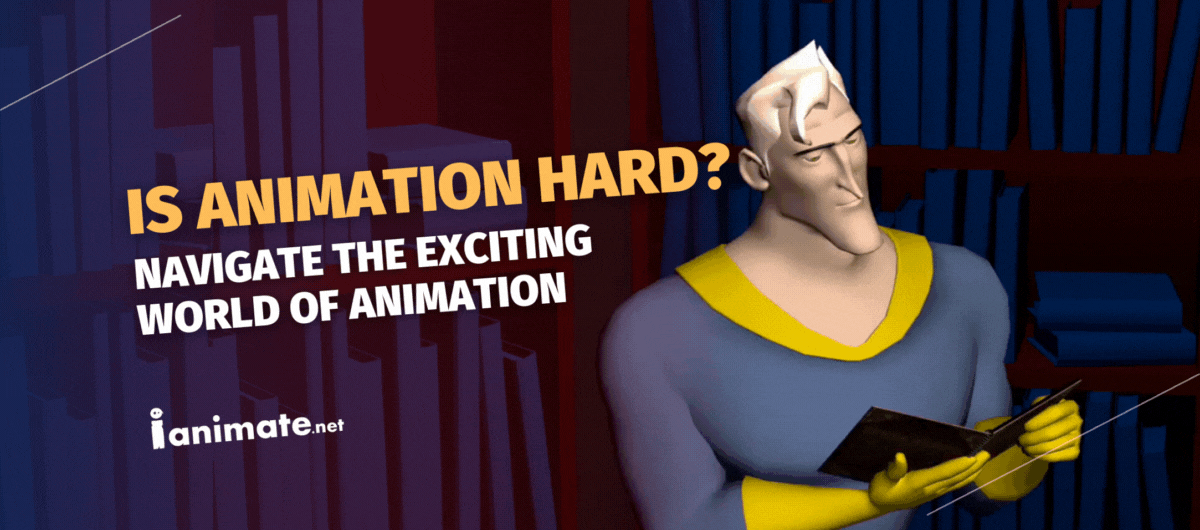
"I gained hands-on experience with industry-standard animation workflows and received direct feedback from top professionals.”
FAQs (Frequently Asked Questions)
Q1: Is animation hard to learn?
A: Animation can be challenging to learn, but it's not impossible. It requires patience, practice, and dedication. While mastering complex software and developing artistic skills takes time, many find the process rewarding. Start with basic principles and simple projects, then gradually build your skills.
Q2: How long does it take to become a professional animator?
A: The time it takes to become a professional animator varies, but typically it takes 3 to 5 years of dedicated learning and practice. This includes formal education or online courses, building a portfolio, and gaining industry experience. However, learning never stops in animation – even professionals continually improve their skills.
Q3: What skills do I need to become an animator?
A: Key skills for animators include
- Artistic ability and creativity
- Understanding of movement and timing
- Proficiency in animation software
- Attention to detail
- Patience and persistence
- Ability to work in a team
- Time management
- Problem-solving skills
Q4: How can I start learning animation?
A: To start learning animation
- Choose your focus (2D, 3D, stop-motion, etc.)
- Learn the 12 principles of animation
- Practice drawing and observing movement
- Start with free online tutorials
- Consider taking courses from reputable providers like iAnimate
- Begin with simple projects and gradually increase the complexity
Q5: What job opportunities are available in animation?
A: Animation offers various career paths, including
- Character animator
- Background artist
- Storyboard artist
- 3D modeler
- Texture artist
- Rigger
- Visual effects artist
- Animation director
Opportunities exist in film, television, video games, advertising, and web design industries.
